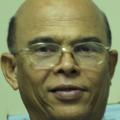Maung was held in a dog cell between Nov. 1995 and May 1996. The group of 24 had no attorneys to defend them against the charges they faced. They were charged with threatening prison security and forming anti-junta organizations in prison. The doctor was then sentenced to an additional 12 years’ imprisonment under both charges.
On April 3, 1997, he was transferred to the Myit-kyi-na prison in the state of Kachin, which is in the north of Burma and has extreme weather. Harsh prison conditions are still commonplace in Burmese prisons, and many prisoners suffer from serious mental disorders resulting from long periods of solitary confinement.
Prisoners cannot get essential medical treatment even in Insein Prison, which is the model prison in Burma. Even worse is the fact that when political prisoners face a fatal illness, they will not be hospitalized unless they abandon their dissident beliefs. Hundreds of deaths are due to the authorities' unnecessarily negligence in medical treatment. Currently, there are more than 2,100 political prisoners in Burma, including 18 members of Parliament, 178 female prisoners and 213 Buddhist monks.
The valiant, imprisoned physician has constantly refused to sign a confession promising to abandon his political beliefs as a condition for his release. Zaw Myint Maung is the father of two sons and one daughter. He has not been able to show fatherly love to his children for nearly two decades. He himself has been suffering from hemorrhoids and stomach pain. With his 57th birthday approaching on Dec. 11, the doctor deserves freedom as a birthday present for his contributions to society.
Burma has been called "the world's largest open prison for prisoners of conscience." There are over 2,100 political prisoners still languishing in Burmese prisons, among whom Zaw Myint Maung may be Burma's longest-serving prisoner of conscience.
Article 5 of the Universal Declaration of Human Rights says: "No one shall be subjected to torture or to cruel, inhuman or degrading treatment or punishment." But Zaw Myint Maung has been suffering from torture and three unjust prison sentences for almost 37 years.
It would be great if international NGOs launched a concerted effort to free political prisoners in Burma, since this situation not only involves regional politics, but is also connected with global humanitarianism. For that reason, the United Nations, ASEAN, the European Union and China should consider pressuring the State Peace and Development Council to free all political prisoners immediately and unconditionally.
(Note: You can view every article as one long page if you sign up as an Advocate Member, or higher).





